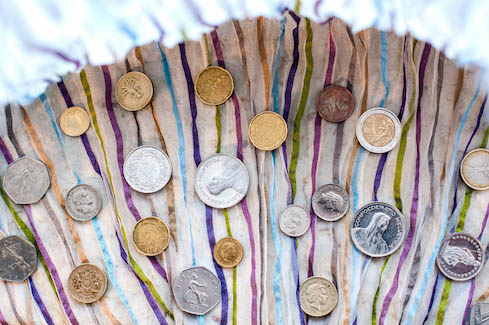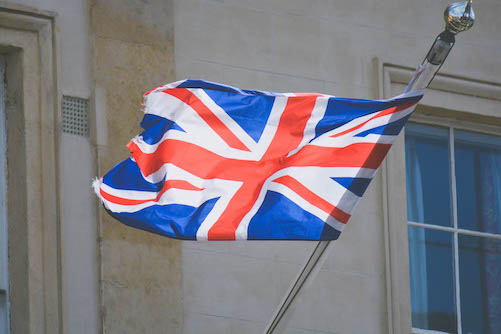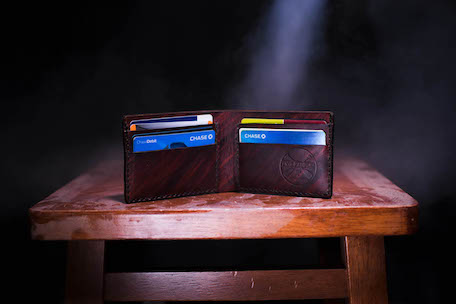Table Of Contents
- 1 Slang Terms For British Money
- 2 Learn More About The Great British Pound (GBP)
- 3 What Is The Difference Between Currencies Of England & The United Kingdom (UK)?
- 4 What If You Still Have Euros In Your Pockets?
- 5 The Present Rate of Foreign Exchange
- 6 Planning to Use Your Debit and Credit Cards?
- 7 Currency Used In London
- 8 To Tip Or Not To Tip?
Learn about the history of the currency of Great Britain and what money is used today in 2024. When was the last time you visited London? If it has been for a while, you may be surprised that the city with the best “Fish and Chips” in the world has gone a lot of changes. Did you use shillings back then? How about sovereigns?
Before flying out to another country, you should take some time to research on how you pay for purchases over there. The last thing you want is to be in a situation in a strange land where you are about to make a purchase and have no means of paying for it.
We’ve taken the guesswork out for you by writing this guide on London’s currency. Sit back, have a cup of coffee, and take a quick read through our guide before finalizing your plans to visit London. First things first, learn the lingo of British currency:
Slang Terms For British Money
Britain is notorious for creating lots of slang terms for their money denominations. The names can be very tricky! Here are some of the common phrases used:
| Money Denomination | Slang Term |
|---|---|
| £10 | Tenner |
| £5 | Fiver |
| £1 | Quid |
General Jargon Names For Cash:

- Wonger
- Dosh
- Ready money
- Readies
- Folding stuff
- Bread
- Dough
- Loot
- Lolly
Learn More About The Great British Pound (GBP)
The official money presently circulating in London is the Great British Pound which has GBP as its currency code. You may often hear the term “Pound Sterling” quoted for the GBP. To avoid confusion, most people just refer to it as The Pound.
It may be a bit inconvenient carrying around Pounds in London. The currency literally “adds pounds” to your wallet but not in a good way. When exchanging for Pounds, you won’t receive a lot of paper bills. It is denominated mostly in coins. Make sure to wear suspenders or cinch your belt tighter.
“The added weight on your wallet may cause your pants to fall!”
Speaking of exchanging for Pounds, if you wish to do so, you can use the money changing services at the airport, the local banks and post office. You may even exchange currency at the train station. Before exchanging currency, check the daily reference rates quoted on broadsheets or on online websites. Stay informed to get maximum value for your money. Also, take the time to cross reference the rates offered at the money changing service centres.
What Is The Difference Between Currencies Of England & The United Kingdom (UK)?

If you’re a bit confused about the moneys used in Great Britain, England, and the United Kingdom or UK, you are not alone! Many people often get confused about which money is used where. Let us clear the air. The UK is composed of England, Wales, and Scotland. So the currency in Wales will be the same as all of the rest of the countries within GB. These countries all have the Pound as its official money. Meanwhile, Great Britain which covers southern Ireland and the other countries we previously mentioned, also observes the Pound as its official currency. However, Southern Ireland is located outside Great Britain and thus has the Euro as its medium of exchange.
What If You Still Have Euros In Your Pockets?
In 2016, the United Kingdom voted to leave the European Union or EU. The event is referred to as “Brexit”. London’s departure from the EU is planned to take effect in 2019. The EU’s official money is the euro. Even when the UK was part of the EU, the Euro never became the country’s official money. You will still find stores, restaurants, and businesses that will honour the Euro as a form of payment but not officially.
“The rate of exchange between these two currencies is known for its volatility.”
So if you have some Euros in your wallet after your trip to a country that is a member of the EU, go ahead and spend them in London! At least, technically, some London retailers will accept euros as payment before the UK officially leaves the EU in 2019.
Like we mentioned earlier, before exchanging Euros for Pounds, it is a good idea to always check the reference rates for both of these currencies.
The Present Rate of Foreign Exchange
Foreign currency exchange is the most volatile and unpredictable of all markets. You can lose out big time in the exchange if you have not done research on the currency market. Find out which is more advantageous for you: to buy the Pound before flying out to London or upon arrival at the airport.
One of the best things you can do is to talk to your bank. Find out if they have an affiliate in London. If so, ask them to contact the affiliate and give you a quote on the current rate of exchange. From there, you can easily make a comparison if buying the Pound is cheaper at home or at London.
Don’t get fooled by the reference rate. Banks impose a spread on the buying and selling price of the currency and these spreads could vary. Other exchange centres at airports, hotels, post office, and transport centres will likewise have their own spread. Another item you should ask about are other charges such as commissions that may be applied during currency exchange.
Planning to Use Your Debit and Credit Cards?

No question, a debit and credit card are welcome companions during travel. They are easy to carry and provide convenience when purchasing items or services. It is a good thing that in London, many businesses accept debit and credit cards as modes of payment. As usual, Visa and Mastercard are the most widely accepted cards. You may have some luck with American Express and Diners Club. Still, best to bring either Visa or Mastercard just to be sure.
Currency Used In London
In London, you should be informed that some businesses may ask you for a PIN or Personal Identification Number as a requirement before making a purchase with your credit card. Thus, it is good advice to request for a PIN number from the bank that issued your credit or debit card. Again, find out if using your debit or credit card will incur charges and fees in London.
ATMs In London
ATMs or Automated Teller Machines are located anywhere and everywhere. You will not have a difficult time finding an ATM while in London. The ATM presents you with the easiest and hassle-free way of having cash for shopping. Before leaving for London, check with your bank if the PIN has been activated.
The ATM will use the present current rate of exchange for your transaction. It will be deducted in US Dollars as you will see in your monthly credit or debit card statement.
Here’s a valuable tip: Exchange currency at the ATM. Chances are you will get a better, friendlier rate compared to the bank! Be sure to have a good idea of all charges related to your ATM transaction.
To Tip Or Not To Tip?
To channel the great British poet, William Shakespeare: “To tip or not to tip, that is the question!” That is indeed the question for most travelers to London! While tipping is done in most countries “To Insure Proper Service”, London is a different story.
Going to a pub is a good example. When the bartender gives you your drink, he or she will not expect you to pay for what the job is supposed to do. On the other hand, tipping is more accepted at restaurants, especially the fine dining variety where experience is part of the package.
How Much Should You Tip?
It is acceptable to provide a tip that is equivalent to 10% of your bill. If the dining experience exceeded expectations, go ahead and tip as much as 15%. Make it a point to check your total bill before deciding to tip. In some cases, the tip has already been factored in the bill.
If you plan to go around London via cab, please note that drivers expect a tip equivalent to 10% of your total dare. Round to the nearest pound the total amount that you will tip.